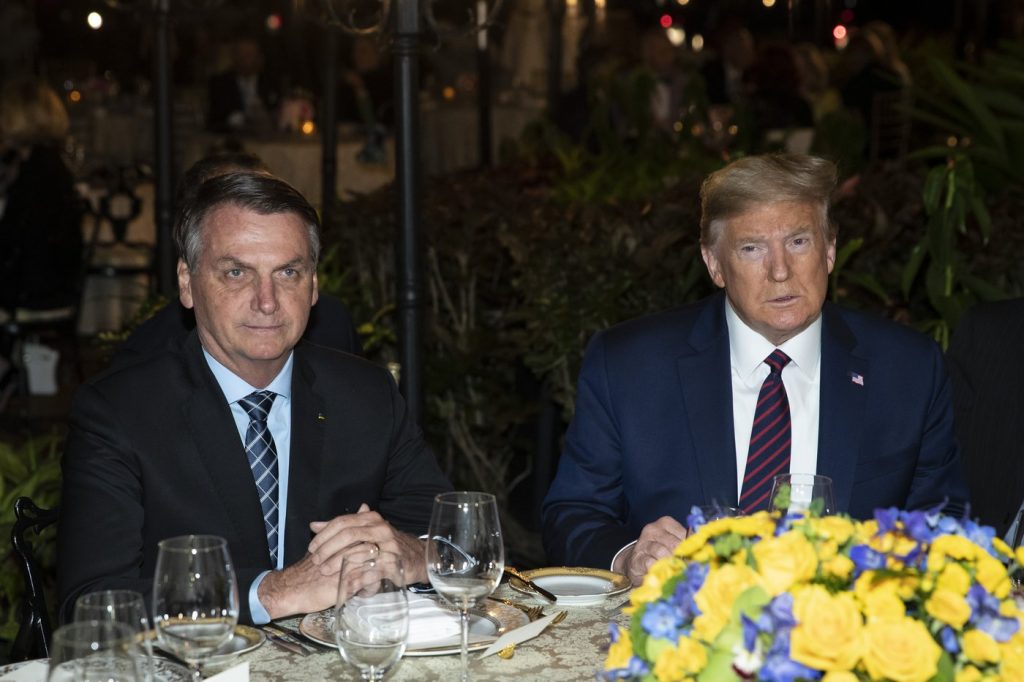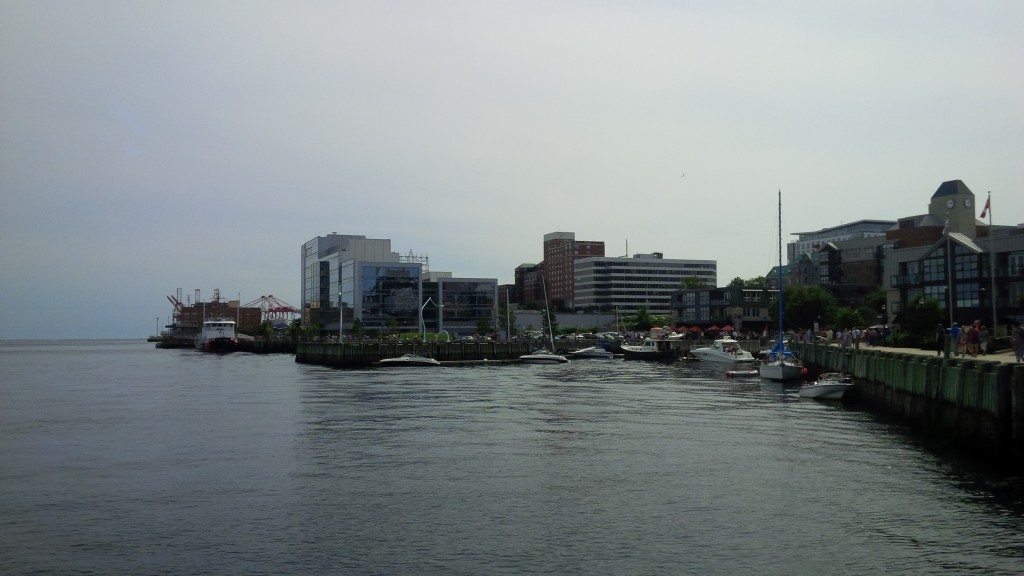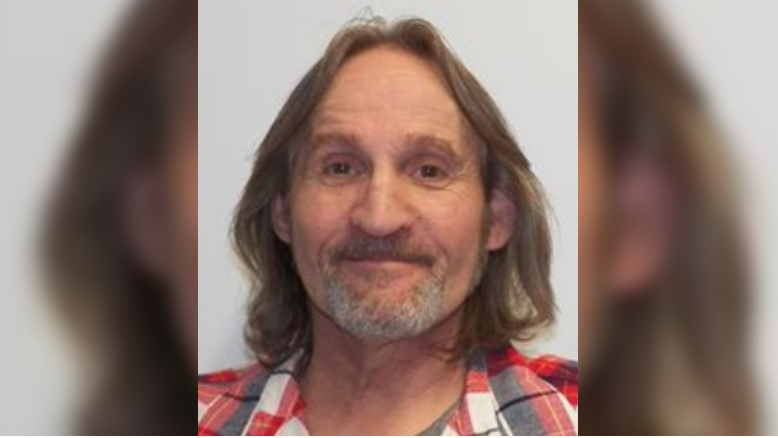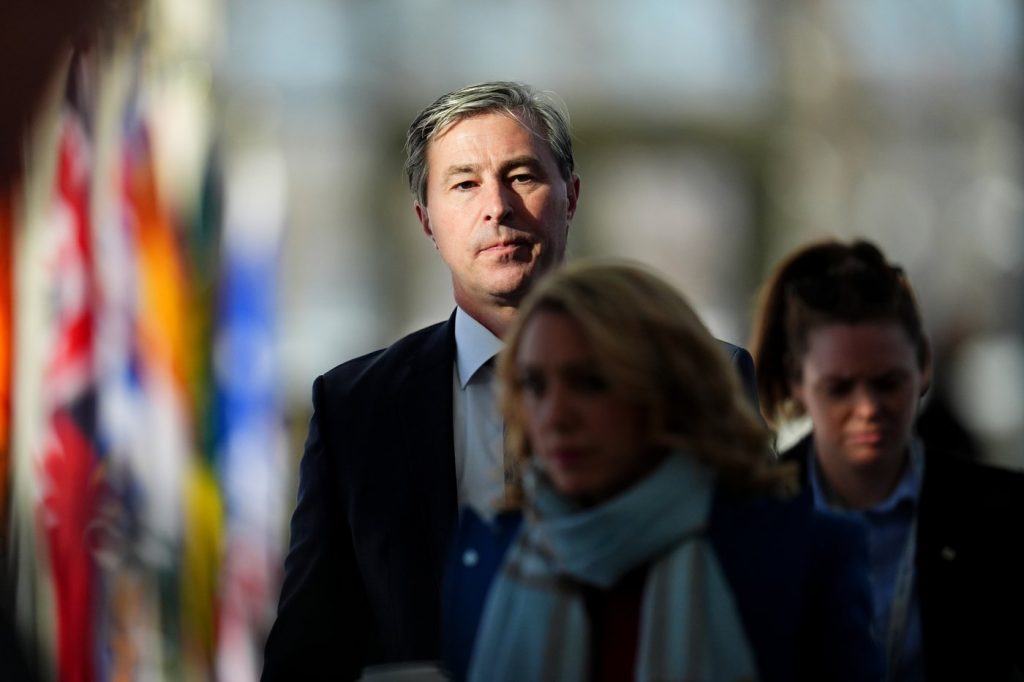With Trump returning to the White House, Brazil displays a judicial path not taken by the US

Posted Jan 17, 2025 04:35:21 PM.
Last Updated Jan 17, 2025 04:46:09 PM.
RIO DE JANEIRO (AP) — A polarized nation. A right-wing populist casting doubt on the electoral system then refusing to concede. A riot by his supporters in the capital aiming to keep him in power.
This isn’t just the story of Donald Trump, but also that of Brazil’s Jair Bolsonaro. The Western Hemisphere’s two largest democracies faced similar challenges in 2020 and 2022, respectively, but their institutional responses have been dramatically different.
Brazil moved swiftly to rule Bolsonaro ineligible for office until 2030, a penalty that could be extended by ongoing criminal investigations. In Washington, however, Republicans in the Senate helped acquit Trump in an impeachment trial that would have prevented him from seeking the presidency again. And the legal process unfolded slowly as the courts grappled with the novelty of prosecuting a onetime president.
The different approaches to Bolsonaro and Trump amount to a case study of how democracies attempt — and sometimes struggle — to hold their most powerful leaders to account. The examples are being closely watched at a time of rising concern that democratic governments around the world are destabilizing.
Fresh memories of authoritarianism
Brazil’s democracy is young, having emerged from military dictatorship four decades ago. The ghost of authoritarianism, which led millions to watch the new movie “I’m Still Here,” continues to haunt many Brazilians — although Bolsonaro, an outspoken cheerleader of the past regime, still won his first presidential race handily.
By contrast, the U.S. of 2020 had no memory of homegrown authoritarianism, which “gave rise to a lot of naivete,” according to Steven Levitsky, author of “How Democracies Die” and director of the David Rockefeller Center for Latin American Studies at Harvard University.
“Part of the story without question is that a number of key players — I’m thinking about non-Trumpist conservatives on the Supreme Court — never really thought Trump represented a threat and didn’t act accordingly, didn’t act like the Brazilian court,” Levitsky said. “There are members of the U.S. establishment that still just cannot imagine that democracy could fall apart.”
Brazil’s Constitution equipped its institutions
Levitsky said the U.S. lacks effective constitutional mechanisms that, for better or worse, can ban parties and candidates deemed a threat. Brazil’s Constitution was written in the wake of the dictatorship and in response to it, providing tools to prevent coups, according to anthropologist Isabela Kalil, a coordinator of the Extreme Right Observatory, a research group based in Minas Gerais state.
The Constitution grants the electoral authority authorization to void candidacies or unseat politicians voted into office in situations that undermine the legitimacy of elections. The authority has the power to enforce decisions nationwide, unlike in the U.S. where each state determines whether someone can appear on its ballot.
Six months after Bolsonaro left office, the court barred him from running again until 2030, ruling that he had abused his power and sowed unfounded doubts about the electronic voting system.
“Our country has shown itself to have a robust democracy, the result of the zeal of the constituents who endowed the institutions with the democratic DNA of the Constitution,” Justice Edson Fachin said, speaking last week at an event marking the anniversary of Bolsonaro supporters storming the presidential palace and Supreme Court in the capital, Brasilia.
Kalil, who is also a professor at the School of Politics and Sociology in São Paulo, noted that the electoral court showed restraint, waiting until after Bolsonaro narrowly lost to leftist Luiz Inácio Lula da Silva before taking action.
It handled Bolsonaro’s case “neither in a dramatic way to interrupt the election, nor in a way to transform Bolsonaro into a martyr, but rather in a certain way to isolate Bolsonaro enough, and that diminished the chances of him gaining political capital,” Kalil said.
A fragmented party system
The U.S. has a system built on two major political parties, one of them fully controlled by Trump, said Levitsky. Brazil, by contrast, has dozens of parties with shifting allegiances, right-wing politicians who seek Bolsonaro’s support but don’t rely on his blessing and viable standard-bearers waiting in the wings.
“There’s a much weaker incentive to get in line behind Bolsonaro no matter what,” Levitsky said.
When electronic vote results came in, key members of the political establishment from across the spectrum endorsed them, including the lower house’s Speaker Arthur Lira, a one-time Bolsonaro backer.
“He stood up on election night in front of the cameras and said the people have voted and their will must be respected,” said Brian Winter, a longtime Brazil observer and vice president of the New York-based Council of the Americas. “If (then-Senate leader) Mitch McConnell had done something similar in the United States, I think history would have been very different.”
Bolsonaro isn’t giving up. He has insisted he will be a presidential candidate in 2026, and polls show he would be competitive if allowed to run. And his allies are clamoring for help from Trump, who Bolsonaro has openly revered.
“With Trump, I am sure that new winds are blowing,” federal lawmaker Bia Kicis, a staunch Bolsonaro supporter who is working to return him to office, said on Jan. 8.
Aggressive investigation
U.S. Attorney General Merrick Garland named a special counsel to oversee the investigation into Trump’s efforts to overturn the election two years after the fact — in November 2022. Special counsel Jack Smith said in his report released Tuesday that he believes his probe would have resulted in a conviction had voters not returned Trump to the White House, ruling out any prosecution.
By contrast, within months after Bolsonaro’s presidency, Brazilian police began investigating his role in the Jan. 8 uprising, whether he embezzled jewels gifted from Saudi Arabia and whether he falsified his COVID-19 vaccination card. All three have produced formal accusations, and the Prosecutor General’s office is weighing whether to formally charge him.
Bolsonaro could stand trial for any of the cases at the Supreme Court by next year, and a conviction would extend his ineligibility for election by years, and possibly land him in jail. He has denied any wrongdoing, and accused the court of overstepping to persecute him.
Over the years, Bolsonaro escalated his attacks against the court, often singling out Justice Alexandre de Moraes, who presides over several probes targeting Bolsonaro and many allies. At one point, Bolsonaro declared he would no longer comply with de Moraes’ rulings, pushing the nation to the brink of an institutional crisis. But the court has held firm.
There has been criticism of the investigations targeting Bolsonaro from his far-right supporters, but also questions among some moderate jurists and analysts.
“I would be hesitant for anyone to hold this up as a model, and that’s because if you disqualify a popular leader, then that, too, can end up eroding your democracy,” said Winter of the Council of the Americas, noting concerns by some Brazilian jurists of possible cutting of corners or unfair targeting.
Where U.S. and Brazilian authorities’ responses align is in the prosecution of rank-and-file supporters who staged uprisings. More than 1,500 people who participated in the Jan. 6 Capitol insurrection have been charged with federal crimes.
In Brazil, 898 people have been held criminally responsible for the Jan. 8 riot, with 371 convicted and the remainder signing leniency agreements, according to a Supreme Court report released Jan. 7. It said another 485 investigations are ongoing. Bolsonaro supporters claim they are being persecuted by Lula’s administration.
“All will pay for the crimes they committed,” Brazil’s president said the next day.
___
Savarese reported from Sao Paulo. Gabriela Sá Pessoa in Sao Paulo and Michael Kunzelman in Washington contributed.
David Biller And Mauricio Savarese, The Associated Press








